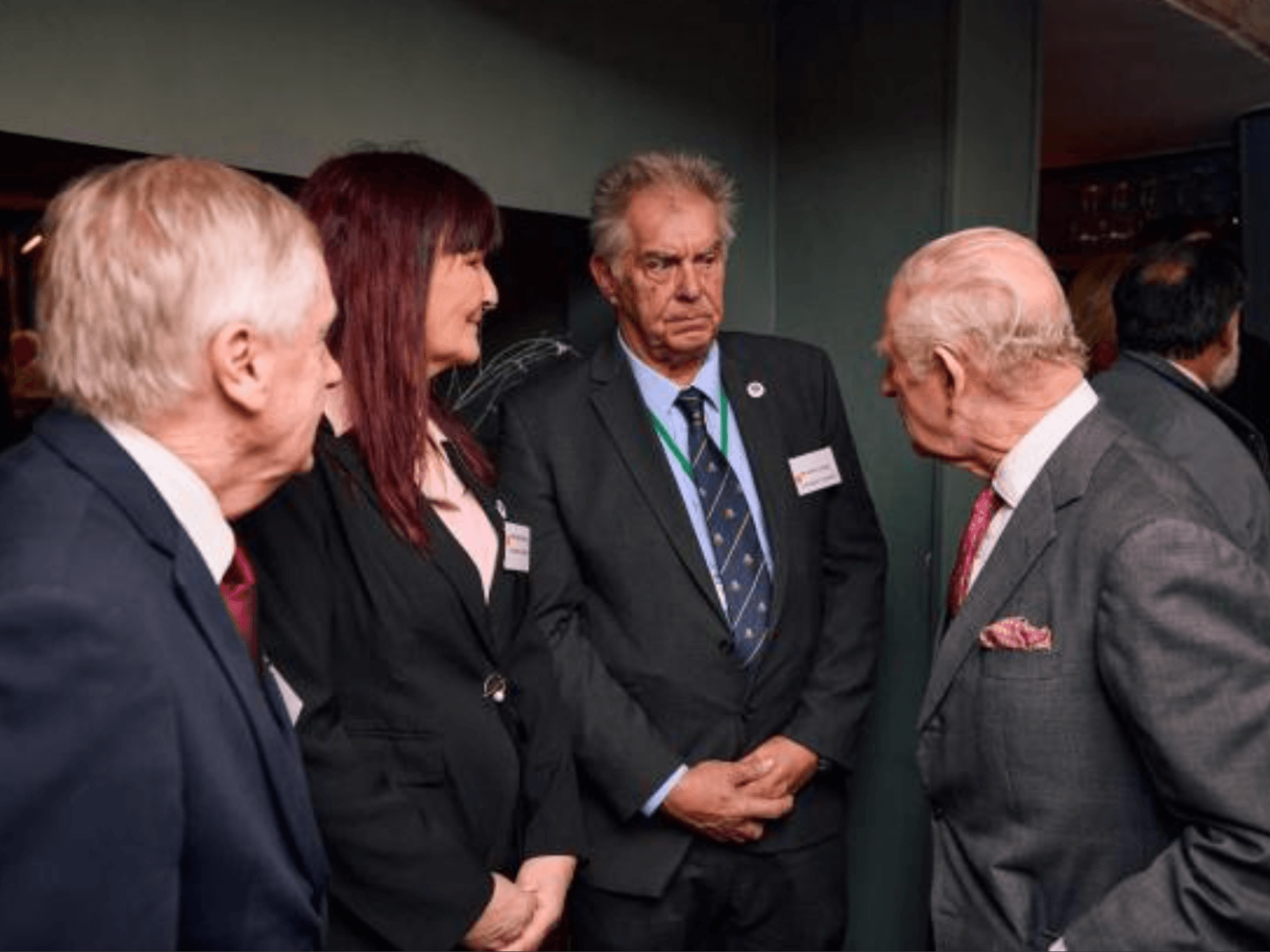Reform UK finished second in 89 Labour seats: Why Nigel Farage is now 'gunning' for Sir Keir Starmer

Reform UK finished second in 93 Labour seats: Why Nigel Farage is now turning his attention to Sir Keir Starmer
|PA/REUTERS

Reform UK finished second in 98 seats, 89 of those were won by the Labour Party
Don't Miss
Most Read
Latest
“We’re gunning for Labour now and they’ll not know what’s hit them,” Reform UK MP Lee Anderson, who defected from the Conservative Party in March, told GB News.
For some time, the rise of Reform UK has been regarded as an existential threat to the Tory Party.
The battle on the right ultimately helped reduce Rishi Sunak’s rump of Tory MPs to just 121, with estimates suggesting the populist party’s inclusion cost Conservative candidates as many as 80 seats.
Labour also appeared to inflate its majority by Farage pillaging 2019 Tory supporters, with a lower-end return of just 349 more likely without Reform UK in the race.
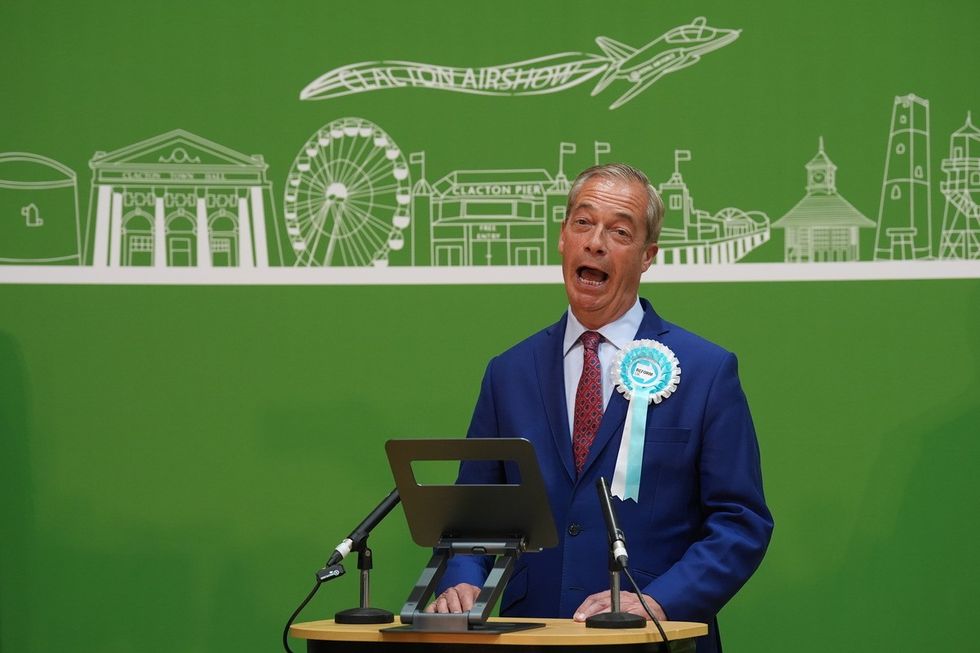
Nigel Farage is among the five new Reform UK MPs after winning the Clacton seat last week
|PA
However, Reform UK’s inclusion on July 4 continues to split opinion.
Despite attracting more than 70 per cent of support from 2019 Tory voters, just one in three Reform UK backers would have supported Sunak if the populist party was not on the ballot.
And it could get worse for the Tories, with 29 per cent of Conservative voters favouring Reform UK over any other party.
Nonetheless, and as former Prime Minister Sir Tony Blair knows only too well, Reform UK’s threat in much of Brexit-backing England and Wales is being directed towards Labour.
Reform UK pulled off five victories and finished second in 98 seats, 89 of which were won by the Labour Party.
Many of these constituencies have been historically held by Labour, including those in Doncaster and Sunderland.
The situation was somewhat different in 2015, with Ukip winning just one seat and finishing second in 120, including just 44 held by Labour.
Addressing the populist party’s plan to go after Starmer, Farage said: “There's no enthusiasm for Starmer whatsoever. In fact, about half of the vote is simply an anti-Conservative vote.
LATEST DEVELOPMENTS:- 'Labour has taken the majority as a mandate for change - but still need to set out what these changes will be!' - John Redwood
- HAVE YOUR SAY - Can the Conservatives recover from Labour's landslide victory? COMMENT NOW
- Tory 'wets' accused of plotting to install 'woke leader' following leaked invitation
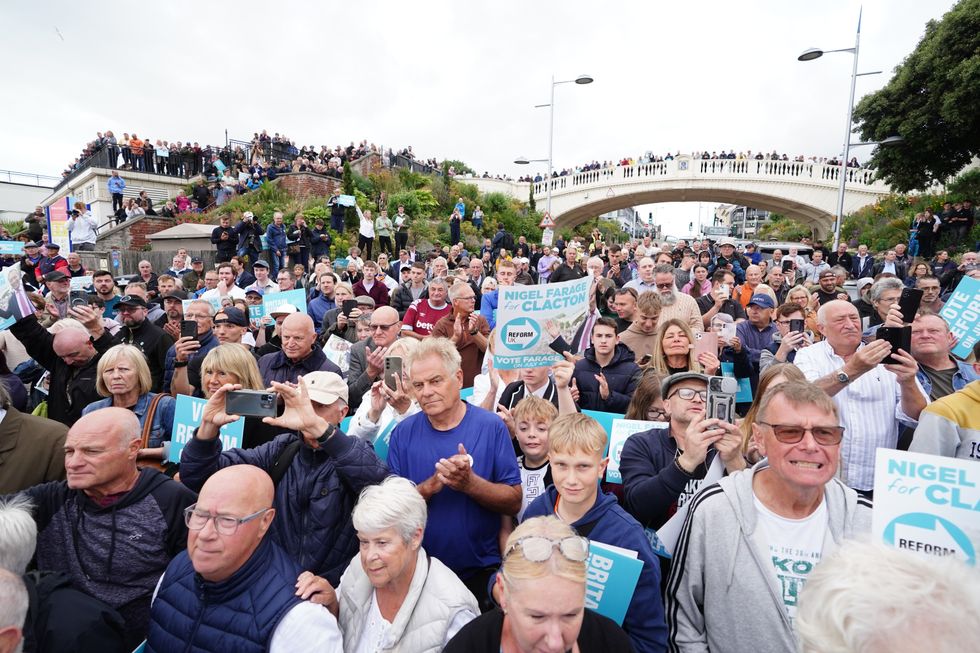
Reform UK supporters in Clacton
|PA
“This Labour Government will be in trouble very, very quickly and we will now be targeting Labour votes. We're coming for Labour, be in no doubt about that."
Labour’s current plan to halt Reform UK in the Red Wall is to embrace the concerns of socially conservative voters on crime, the NHS and immigration.
Sir Keir Starmer also plans to paint the populist party as “continuity chaos" or part of a “coalition of chaos” alongside the Tories.
Business Secretary Jonathan Reynolds jumped out of the blocks by launching a blistering attack on Reform UK yesterday.
He said: “We will tell people what their agenda would mean for their economic and national security. We know we're in the right place and a party like Reform is frankly not.”
However, not everyone in the Labour Party is convinced by the strategy so far.
A leading Red Wall Labour source told GB News: “I’ve been saying for some time that Reform will finish second in around a hundred seats. It definitely changes perceptions for the next election as they can say the Tories are now the wasted vote.
“Farage will bang on for five years about proportional representation and immigration. This is going to force us to tack to the right.”
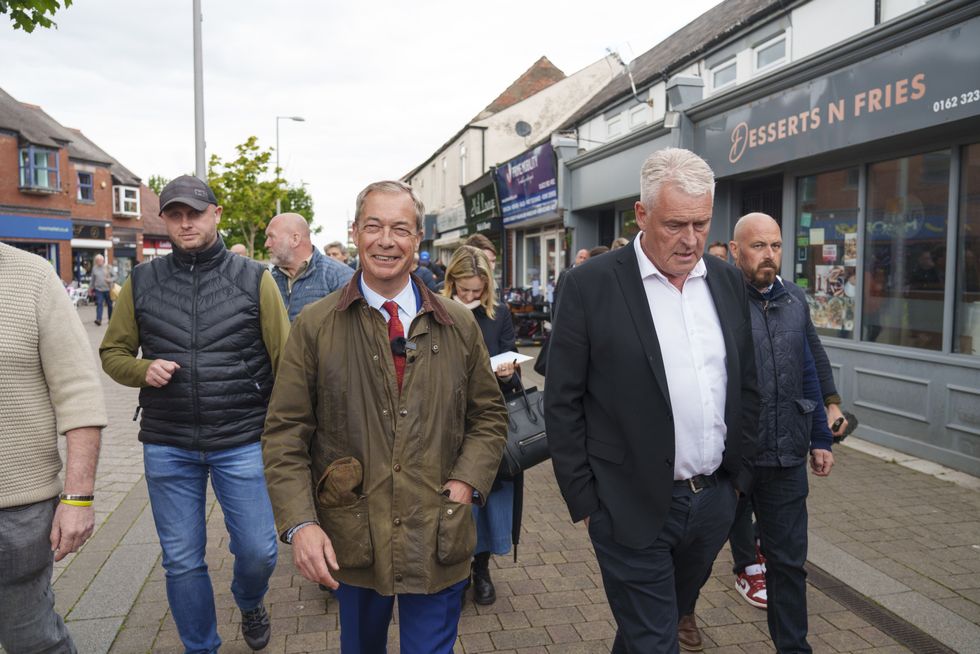
Lee Anderson won in Ashfield
|PA
When asked if Starmer is ready to tackle Farage, the Labour insider claimed: “No. What we do next could legitimise Reform even more.”
And the insider might just be right to be concerned.
Polling suggests that as many as one in six Labour voters would consider supporting Reform UK.
Lord Maurice Glasman, a Labour peer who supported the UK leaving the European Union, also highlighted just how significant a threat Farage poses to Starmer.
He claimed: “Farage is the biggest threat to Labour because of the energy, the articulation of discontent, working-class discontent, of having some notion of national renewal. All of these are Labour positions and that makes this a very interesting Parliament.”
Lord Glasman added: “Labour has got to be prepared to take on Farage. That’s the terrain now. The Conservatives suffered their worst defeat in over 200 years. They’re wiped out. There are no Tory heartlands. It is this terrain where Labour can establish political hegemony.”
The 63-year-old, who is known for coining the phrase Blue Labour, argued establishing an industrial strategy, building homes and addressing immigration as a “national security issue” is key to defeating Farage.
Tony Blair, Labour's most successful Prime Minister, even heaped pressure on Starmer to address the issue of immigration if he had any hope of seeing off Reform.
Blair said: “Cultural issues, as much if not more than economic issues, are at the heart of it. Reform has pillaged the Tory vote in this election, true. But it poses a challenge for Labour too.”

Sir Keir Starmer's Labour Party won a landslide
|PA
Blair added: “We need a plan to control immigration. If we don’t have rules, we get prejudices.”
Labour’s plan to curb illegal immigration involves scraping the Rwanda scheme and instead establishing a new Border Security Command.
Reform UK’s pivot to Labour is looking to win over a very specific type of voters.
It is all too often forgotten that a majority of seats held by Labour ahead of the 2016 referendum voted to leave the EU, with many of them churning out huge levels of support for Ukip and later for the Brexit Party.
Dozens were toppled by Boris Johnson as he crusaded through the Red Wall in 2019.
Commentators might believe falling back into Labour hands shows a complete rejection of these previously held ideas.
However, it is much more likely just a rejection of the Conservative Party’s implementation of such ideas.
And Reform UK is also hoping to reach some corners of the country that have always been out of reach for the Tories.
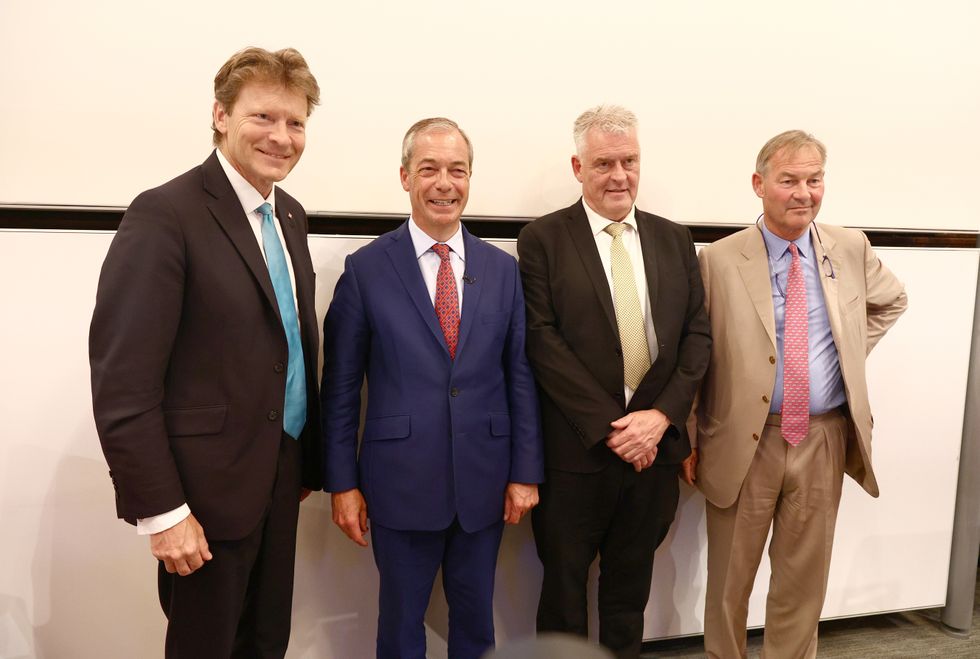
Reform UK elected five MPs, including Farage, Anderson, Richard Tice and Rupert Lowe
|PA
The Carmarthenshire constituency of Llanelli has returned a Labour MP in every election since 1922.
However, Reform UK’s Gareth Beer pulled off the remarkable feat of cutting Nia Griffith’s majority to the smallest held by any Llanelli Labour MP.
Sitting just 1,504 votes behind, and with the Tories on 4,275, Reform UK has brought the Brexit-backing tin town into play for the first time.
And it is not just in Llanelli where this is happening.
From Bradford South to Rotherham, the populist party is within touching distance of Labour.
Reform UK’s inroads come amongst 2016 Brexit supporters, with 27 per cent supporting the populist party.
The Tories were marginally ahead by 33 per cent but remain 42 per cent down compared to 2019.
And Labour registered a 10-point boost with Brexiteers to take the party's support to 23 per cent among those who opted to cut ties with the Brussels bloc.
There are plenty of other Labour-held Brexit-backing constituencies that are even more fragile to Reform UK.
Ashfield, like other leave-voting traditional Labour seats, fell to the Tories in 2019.

Labour Party leader Sir Keir Starmer with First Minister of Wales Vaughan Gething (right) and local parliamentary candidate for Carmarthenshire, Martha O'Neil
|PA
Anderson represented Ashfield as a Tory before defecting to Reform UK after losing the whip for making controversial comments about London Mayor Sadiq Khan.
The Nottinghamshire coalfield was considered by many as a seat well within Labour’s grasp on July 4.
However, Anderson performed better than either the Brexit Party in 2019 or Ukip in 2015 to hold his seat by 5,509 votes.
Other constituencies which have voted Tory could also prove more in play for Reform UK at the next election if voters come around to the idea that support for the populist party is not futile.
Amber Valley, Dover & Deal, Thurrock and Great Grimsby & Cleethorpes all flipped from Tory to Labour and saw the Conservative candidate languish behind their Reform rival in a distant third place.
Such seats could prove fertile ground for the populist party if the Tories fail to get their act together ahead of 2029.
The Tories have long argued populist parties to the right only help Labour enter power.
To some extent, that might be true.
However, in dozens of seats, Reform UK is the stronger force to take on Labour and perhaps even win.
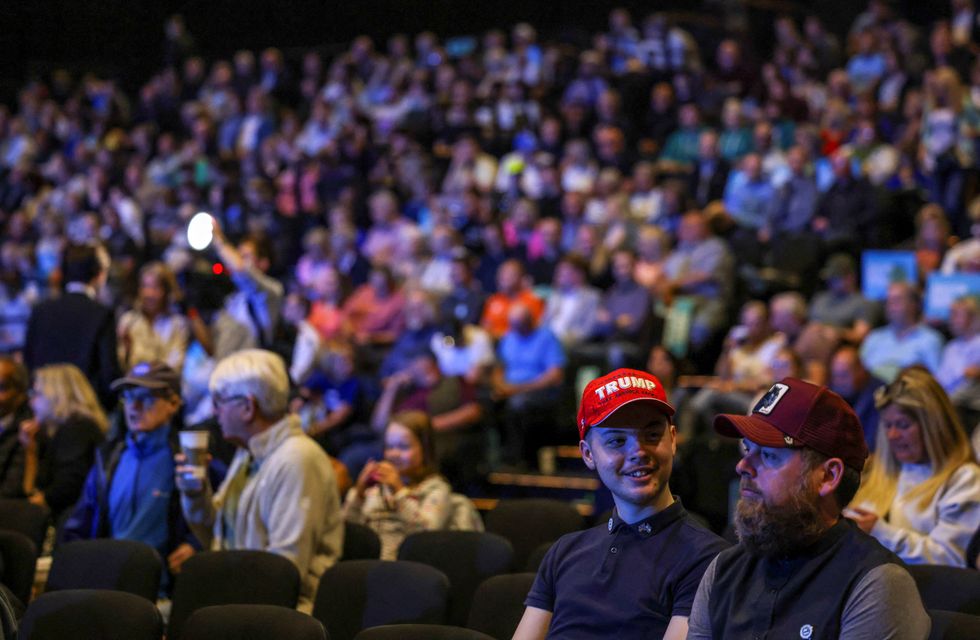
Reform UK's rally in Birmingham
|REUTERS
A Reform UK source told GB News: “In large parts of the country, it’s a vote for the Tories that will block a Reform candidate from getting in and let Labour win.
It is also important to remember that across the country, Labour’s vote share almost completely stood still at 34 per cent, only marginally above the share Jeremy Corbyn received in 2019.
However, made even better by Reform UK’s showing, Labour hoovered up seats as Tory support plummeted by around 20 per cent.
Reform UK’s next big electoral test, excluding any almost inevitable by-elections, comes in 2026 when voters across Wales go to the polls to elect members to Cardiff Bay.
The populist party finished second in 13 out of Wales' 32 constituencies, with Reform UK also doing enough to cost the Tories as many as eight others.
A Reform UK source said: “We’re going to be a major threat. Once we establish ourselves in Westminster, there will be a major focus on devolved elections in 2026. If the results last week were replicated at the Welsh Parliament Election, we would become a major player in Wales.
“A grouping of that size would be able to give us a strong infrastructure. We’d push that on Welsh issues but national problems also impact Wales, including immigration.”
Excluding the European Parliament, Ukip used Cardiff Bay as a place to blood young talent after electing seven members to the Welsh Parliament in 2016.
And the Tories on either side of the River Severn have been left debating what to do about Farage.
Ex-Wrexham MP Sarah Atherton, who lost her North Wales seat by just 5,948 votes as Reform UK hoovered up 6,915 ballots, urged Tories to “embrace” Farage following her defeat.
However, Welsh Tory leader Andrew RT Davies said: “The issues that the Welsh Conservatives, and indeed Wales, is facing will not be found through the empty lens of Nigel Farage’s pint glass.”
Boris Johnson, who was involved in a spat with Farage about Russia’s invasion of Ukraine during the election campaign, added: “I am afraid that the cheroot-puffing Pied Piper of Clacton has played a significant part - as he no doubt intended - in the destruction of the Tory Government.”
However, potential leadership contender Suella Braverman recently claimed: "There’s not much difference really between him and many of the policies that we stand for."
It is fair to say most senior Tory figures oppose doing a deal with Farage.
But it remains to be seen how much more havoc the Brexit supremo wreaks in seats held by both Conservative and Labour MPs.





